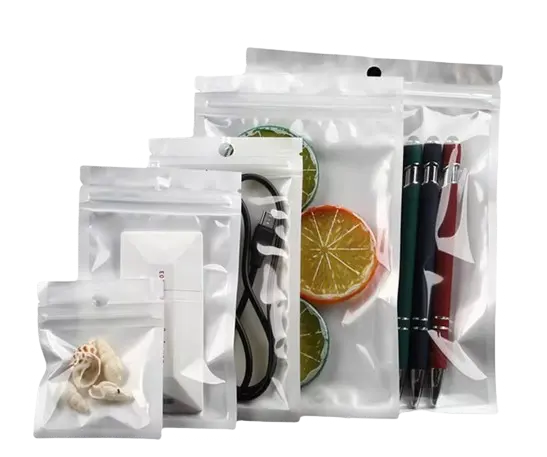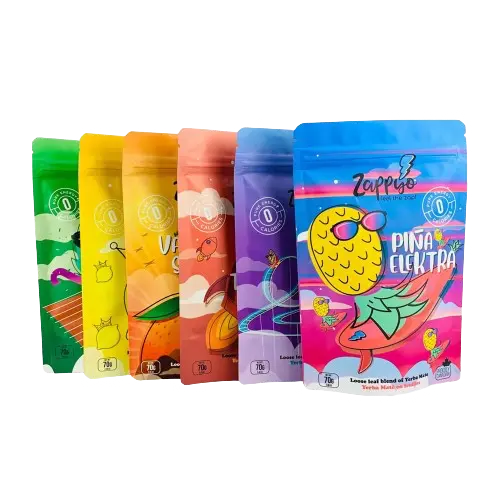WeChat:
+86-189 7322 3283
What’s app::
+86-13630093256
Content Menu
● The Essential Role of Packaging Bags in Shipping
>> Protection Against External Elements
>> Cost Efficiency Through Lightweight Design
>> Versatility and Customizability
>> Environmental Considerations
● Advantages of Different Types of Packaging Bags
● How Packaging Bags Enhance the Shipping Process
>> Streamlining Handling and Storage
>> Reducing Product Damage and Returns
>> Improving Customer Experience
● Frequently Asked Questions (FAQ)
>> 1. What types of products are best suited for poly bags in shipping?
>> 2. How do paper mailing bags compare to plastic bags in terms of environmental impact?
>> 3. Can packaging bags be customized for branding purposes?
>> 4. Are padded mailers necessary for all shipments?
>> 5. How do packaging bags help reduce shipping costs?
In the fast-paced world of commerce and logistics, the role of packaging bags for shipping is often underestimated. Yet, these simple materials are critical to ensuring products reach customers safely, efficiently, and in pristine condition. Whether you are a business owner, an e-commerce seller, or a logistics professional, understanding why packaging bags matter can significantly impact your operational success and customer satisfaction.

Packaging bags serve as the first line of defense for products during transit. They protect goods from environmental factors such as moisture, dust, dirt, and physical damage. Without proper packaging, items are vulnerable to scratches, breakage, or contamination, which can lead to costly returns and damage to brand reputation.
One of the primary functions of packaging bags is to shield products from external hazards. Shipping involves multiple stages-loading, unloading, transportation, and handling-that expose goods to various risks. Packaging bags made from durable materials like polyethylene or kraft paper provide a protective barrier that prevents water damage, dirt infiltration, and physical abrasion. This protection is especially vital for delicate or sensitive items such as electronics, clothing, and documents.
Packaging bags are typically lightweight and flexible compared to traditional cardboard boxes. This characteristic reduces the overall shipping weight, which can lower transportation costs significantly. For businesses shipping large volumes, these savings add up, making packaging bags an economical choice. Moreover, their compressible nature means they take up less storage space before use, optimizing warehouse efficiency.
Packaging bags come in various sizes, shapes, and materials, catering to a wide range of products. From flat poly mailers for apparel to padded bags for fragile items, the versatility allows businesses to select the most appropriate packaging for their needs. Additionally, packaging bags can be customized with branding elements such as logos, colors, and promotional messages, turning shipping materials into marketing tools that enhance brand visibility and customer experience.
Sustainability is increasingly important in packaging decisions. Paper mailer bags, for example, offer an eco-friendly alternative to plastic, featuring recyclable materials and biodegradable properties. Meanwhile, advances in plastic bag manufacturing have introduced recyclable and biodegradable options that reduce environmental impact. Choosing the right packaging bags can help businesses meet regulatory requirements and appeal to environmentally conscious consumers.

Polyethylene bags are popular for their durability, water resistance, and lightweight nature. They are flexible, easy to seal, and can be made tamper-evident to enhance security. Plastic bags are cost-effective, often cheaper to produce than paper alternatives, and require less energy to manufacture. They are ideal for shipping clothing, accessories, and small electronics where protection from moisture and dirt is essential.
Paper mailing bags, especially those with corrugated layers, offer excellent rigidity and protection. They are safe, convenient, and cost-saving due to mass production efficiencies. Paper bags are preferred for their environmental benefits and are suitable for shipping items that require moderate protection without exposure to moisture.
For fragile items, padded mailers combine the lightweight benefits of bags with cushioning materials such as bubble wrap or foam. These mailers protect against shocks and impacts during transit, reducing the risk of damage.
Packaging bags simplify the handling and storage of goods. Their standardized sizes and shapes facilitate stacking and organizing in warehouses and shipping containers. Features like self-sealing adhesives speed up packing, reducing labor costs and improving efficiency. Clear labeling on bags ensures accurate sorting and delivery, minimizing errors.
Using high-quality packaging bags reduces the incidence of product damage during shipping. This leads to fewer returns and replacements, saving costs and preserving customer trust. Secure packaging deters tampering and theft, which is crucial for high-value or sensitive items.
Packaging is often the first physical interaction customers have with a product. Well-designed packaging bags that are easy to open, visually appealing, and protective contribute to a positive unboxing experience. Custom branding on bags also reinforces brand identity and professionalism, encouraging repeat purchases.
Packaging bags for shipping are far more than mere containers-they are vital components that protect products, optimize logistics, reduce costs, and enhance customer satisfaction. Whether choosing plastic, paper, or padded mailers, selecting the right packaging bags tailored to your product’s needs can make a significant difference in your business success. Invest in quality packaging solutions today to ensure your shipments arrive safely and impress your customers from the very first touch.
Ready to upgrade your shipping packaging? Contact us now to explore custom packaging bag options that fit your business needs and budget!

Poly bags are ideal for lightweight, non-fragile items such as clothing, documents, and small accessories. Their water resistance and durability make them perfect for protecting goods from moisture and dirt during transit.
Paper mailing bags are biodegradable and recyclable, making them environmentally friendly. Plastic bags, while traditionally seen as less eco-friendly, now have recyclable and biodegradable options and require less energy to produce, which can reduce their overall environmental footprint.
Yes, packaging bags can be printed with logos, brand colors, and promotional messages. Customization helps businesses enhance brand recognition and create a professional image that resonates with customers.
Padded mailers are recommended for fragile or delicate items that require extra cushioning to prevent damage from shocks and impacts during shipping. For sturdy or non-fragile products, standard poly or paper bags may suffice.
Packaging bags are lightweight and flexible, which reduces the overall package weight and size. This can lower shipping fees, especially for e-commerce businesses where every gram counts. Additionally, their compact nature saves storage space, reducing warehousing costs.
Hot Tags: Packaging Bag For Shipping, Shipping Bags, Custom Shipping Bags, Protective Packaging Bags, Shipping Pouch, Durable Shipping Packaging, Heavy Duty Shipping Bags, Mailer Bags, Shipping Bag Supplier, Shipping Packaging Solutions